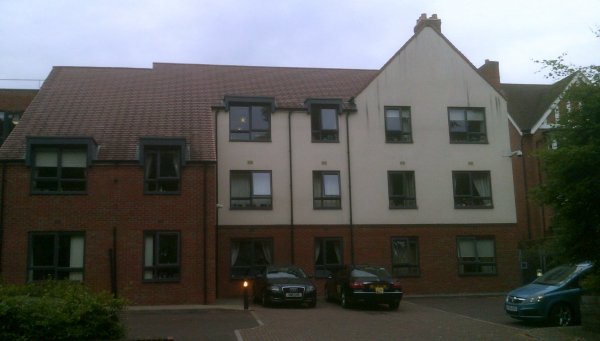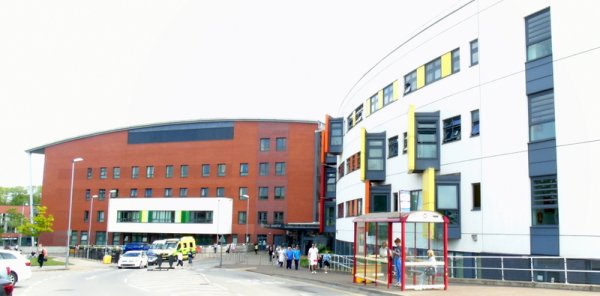Nov 20th 2018, 20:23
Blog 20th November 2018
In this week’s blog, I refer to: Service Charges, the United Nations, the Joseph Rowntree Foundation, Brexit, the BBC, BBC Panorama, Universal Credit, the New European, the National Health Service (NHS), the European Medical Agency, Emmanuel Macron, European Union, housing, training and seminars.
Today, we have launched the 2019 series of seminars on ‘All You Want to Know about Service Charges in Social Housing’ that will be held in venues in London and Leeds between February and October 2019.
Service charges are an integral part of landlords’ work in financing value for money services and sustaining customer satisfaction. They have always been relatively complex but with increased financial challenges and legal and financial complexity there is an increased need to understand how service charging works.

Abbeyfield Solihull - supported housing where services are supported through service charges
This seminar is designed to give an introduction and overview to this important subject and is fully up to date with all developments. It will address the following issues:
To view or download a copy of our brochure, please click here
For further information or to make a booking, please click here
Last Friday, the United Nations published a report on poverty in the United Kingdom and it makes for disturbing reading. For twelve days, Philip Alston, special rapporteur on extreme poverty for the United Nations and an expert in human rights law based at New York University, visited locations including Belfast, Bristol, Cardiff, Edinburgh, Essex, Glasgow, London and Newcastle on a fact-finding mission. He met people affected by poverty as well as government officials, discussing the impact of austerity, changes to benefits and local government funding.
His report concludes that ministers are in a ‘state of denial’ about poverty and that despite Britain being one of the world's richest countries levels of child poverty are ‘staggering’. At a news conference in London, he said he witnessed:
“A lot of misery, a lot of people who feel the system is failing them, a lot of people who feel the system is really just there to punish them".
Quoting figures from the Joseph Rowntree Foundation, he said that more than 1.5million people were destitute at some point in 2017, meaning they lived on less than £70 a week or went without essentials such as housing, food, clothing or heating; and that a fifth of the population, amounting to 14million people, are living in poverty.
Commenting on social divisions, Professor Alston said that:
"The era of connectivity and the era of social media makes it much less sustainable to have this dramatic difference between people living the high life, a higher life than has ever been lived before, and at the other end, people who can't afford a tin of beans, can't afford the seventh meal of the week."
Professor Alston found that among experts in the media, think tanks, Parliament and organisations such as the National Audit Office there was ‘close to unanimity’ that Britain was not doing enough to combat poverty. However, he said that this contrasted with the attitude of government that was focused on reducing welfare dependency. He also warned that the poor would ‘bear the brunt’ of the expected impact of Brexit on the United Kingdom economy and said the fall in the value of the pound had already cost low-income families £400 a year. He said that:
"Ministers with whom I met told me that things are going well that they don't see any big problems and they are happy with the way their policies are playing out… In my meetings with the government, it was clear to me that the impact of Brexit on people in poverty is an afterthought… The poor will be substantially less well off than they already are… It is the most vulnerable and disadvantaged members of society who will be least able to cope and will take the biggest hit.”
To view or download a copy of the report please click here
On Thursday I will be in the southeast of England to present in-house training on Universal Credit, Rent Collection and the Management of Arrears at a local authority. This is becoming an important issue for local authorities and housing associations as they see rent arrears increasing following the roll out of Universal Credit and the introduction of direct payments. Last Monday I watched the BBC Panorama programme ‘The Universal Credit crisis’ that investigated the implications of Universal Credit and, amongst other things, found that tenants’ average arrears increased from £263 to £663 when Housing Benefit was replaced by Universal Credit.
For further information on in-house training in managing rent arrears, please click here

Pinderfields Hospital, Wakefield
Last week’s ‘New European’ included an interesting piece by Edwin Hayward that identified fifty ways in which Brexit is already impacting on the United Kingdom. Many of these impacts are affecting health services and the National Health Service including:
On Sunday, President Emmanuel Macron of France made an interesting speech at the Reichstag in Berlin at a ceremony to honour the victims of past wars and dictatorships.
He said that it was Europe that had led the drive for green energy and against climate change and was now most strongly pushing multilateral approaches to trade, security, migration and environmental policy; and called for greater European unity to meet future challenges in an uncertain world. He said that:
"There are too many powers that wish to thwart us, that interfere in our public debates, attack our liberal democracies and are trying to pit us against each other… And in this global order, which we have to take very seriously, our strength - our true strength - lies in unity.
“(Europe) must assume greater responsibility for its security and its defence, and must not accept a subordinate role in world politics… Europe (has) the obligation not to let the world slip into chaos and to guide it on the road to peace… That's why Europe must be stronger... and win more sovereignty."